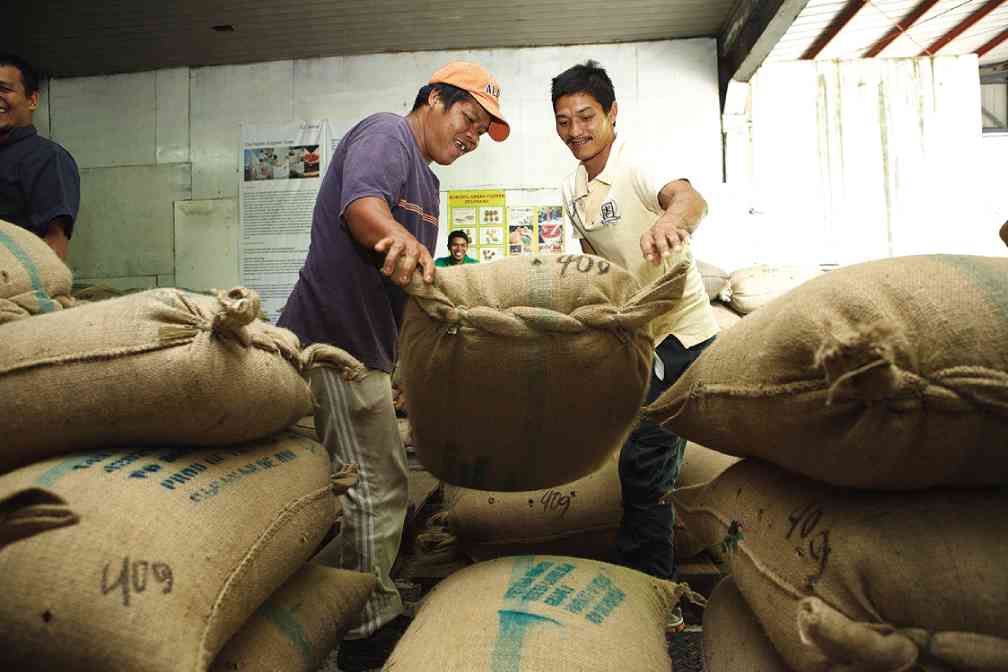Contribute to ‘inclusive growth,’ PH firms urged

NESTLÉ plans to increase the number of its coffee buying stations to help farmers sell their beans at a good price. WWW.Nestle.com.ph
Rapid economic growth is meaningless unless it benefits the so-called bottom of the pyramid—the estimated 25 percent of the Philippine population living below the poverty threshold.
Member-firms of the Philippine Business for Social Progress, the country’s oldest private-sector led foundation, subscribe to this belief, which is why an increasing number of them are harnessing the many strengths of their organizations to promote “inclusive growth,” or economic growth that directly helps those who need assistance the most.
“The challenge for business is to revisit their business models and see how the model can change the exclusion situation for more inclusive growth,” PBSP executive director Rafael Lopa says in an interview.
“Business needs to also make some changes,” he adds.
A number of companies are leading the way and providing examples on how to do just that.
Multinational Nestlé, for example, is increasing the number of its coffee buying stations around the country to provide a ready and sure supple for coffee markets.
This way, farmers are provided greater incentives to plant more coffee.
More output from local coffee farmers likewise will benefit Nestlé because this will cut down on its importation of coffee beans, which are used to process instant coffee.
Nestlé currently secures only 30 percent of its total requirements from the Philippines because there is simply not enough volume.
There are also concerns about the quality of the local produce.
The plan hopefully is to bring the share of domestic output up to 70 percent, not just through the setting up of coffee buying stations but also the implementation of education programs to help local coffee farmers improve the quality of their output.
Conglomerate Phinma Inc., on the other hand, is building up its portfolio of socialized housing units in partnership with the Quezon City government and Pag-Ibig.
Through the landmark Bistekville project, informal settlers are provided the opportunity to own their own home at a maximum cost of P3,000 a month.
The local government provides the land, Phinma provides the technical expertise and the up-front construction of the physical structures, while Pag-ibig comes in to provide affordable loans to qualified home buyers.
“The logic is that even if the margin is low, there is still decent profit because it is a volume game. In turn, the informal settlers enjoy better and more permanent living conditions within the city,” says Lopa.
Agriculture is another area that is replete with examples of inclusive growth at work.
Jollibee Foods Corp., for example, has partnered with the Catholic Relief Services and National Livelihood Development Corp. to train farmers in Nueva Ecija to provide some of the white onions that Jollibee needs to make its best-selling hamburgers.
Through this system, farmers directly benefit in Jollibee’s growth, while the company is better assured of a stable supply chain.
Jollibee is seeking to duplicate the system for its other food requirements, including chicken.
“Profit for profit alone will not work anymore,” stresses Lopa. “What we are saying is that maximizing shareholder return is still valid, but you can also do these other things, like protecting your supply chain by involving low-income families.”
Companies in the Philippines are not the only ones involved in the conversation of inclusive growth or addressing the imbalance in income—the growing disparity in the life conditions of the rich and poor.
“Capitalism really has to revisit itself,” says Lopa, who goes on to suggest that such a reinvention can start at home.














